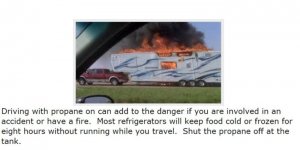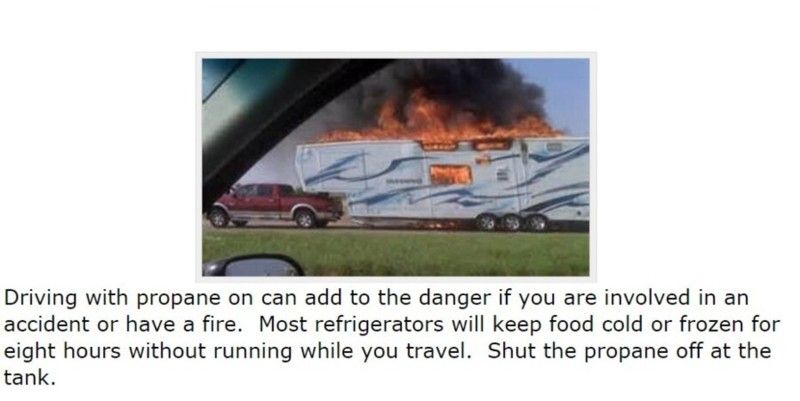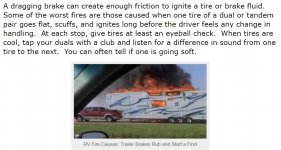From some of the posts in this refrigerator section, it seems there are many who believe that turning off the refrigerator causes the frig temperature to go up to 100°F with 10 minutes of turning off the electric (or propane).
So I ask those who run their RV refrigerators 100% of the time, why?
When driving to my next destination, my refrigerator is always turned off.
Even on those hot 100°F August days when the cabin temperature gets up to 95°F by the time I pull into the next campground, (or stop for the night in a rest area or whatever), there is still ice in the freezer and my beer is cold in the frig.
First thing to do on arrival is plug in the 120 VAC and turn on the refrigerator and air conditioning. And maybe the water heater.
My refrigerator won't keep its cool forever, but it will last for 8 to 10 hours before turning it back on at the next overnight stop.
To those who run their refrigerators on propane while driving down the highway, do you also have your water heater on while driving?
It has been my experience that both the refrigerator and the water heater have sufficient thermal insulation to keep their cool (or hot for the water heater) for longer than I can keep driving (8 to 10 hours).
If you are team driving, the extended driving hours might require running the refrigerator while on the highway to keep your ice from melting.
Needless to say, the more you open the refrigerator door, the faster it loses its cool (just like an Igloo cooler).
If your travels happen to take you on the Galveston ferry, you have to show the ferry traffic attendant that your propane is shut off at the tanks before they will allow you to drive your rig onto the ferry.
I sincerely hope your food doesn't spoil during that 20 minute ferry ride!
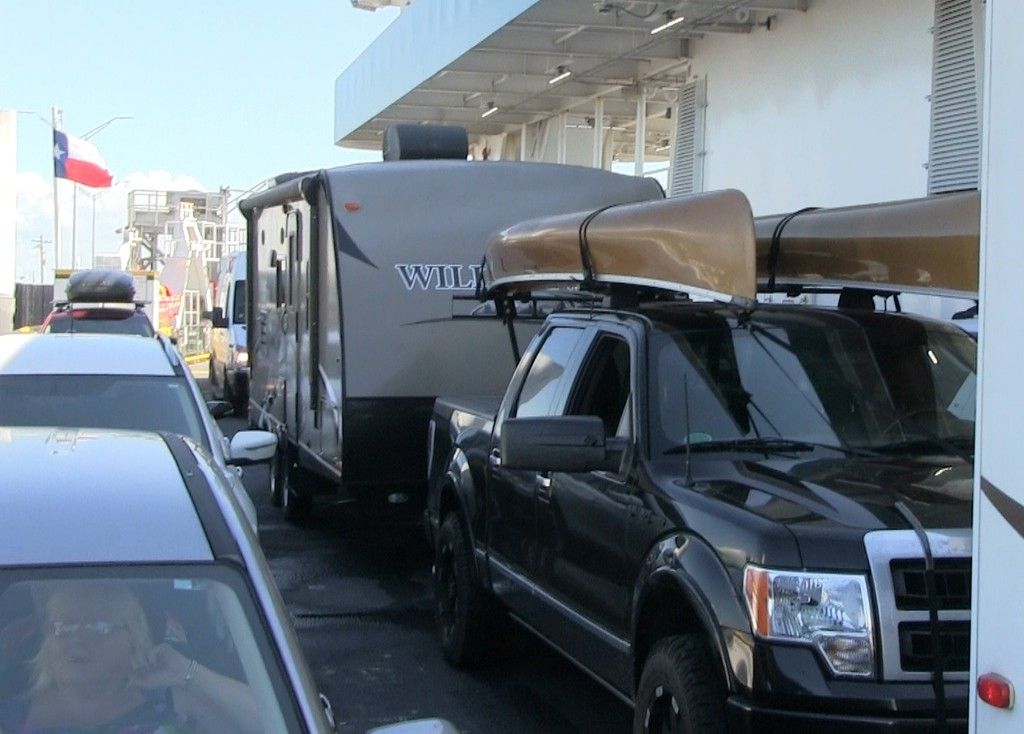
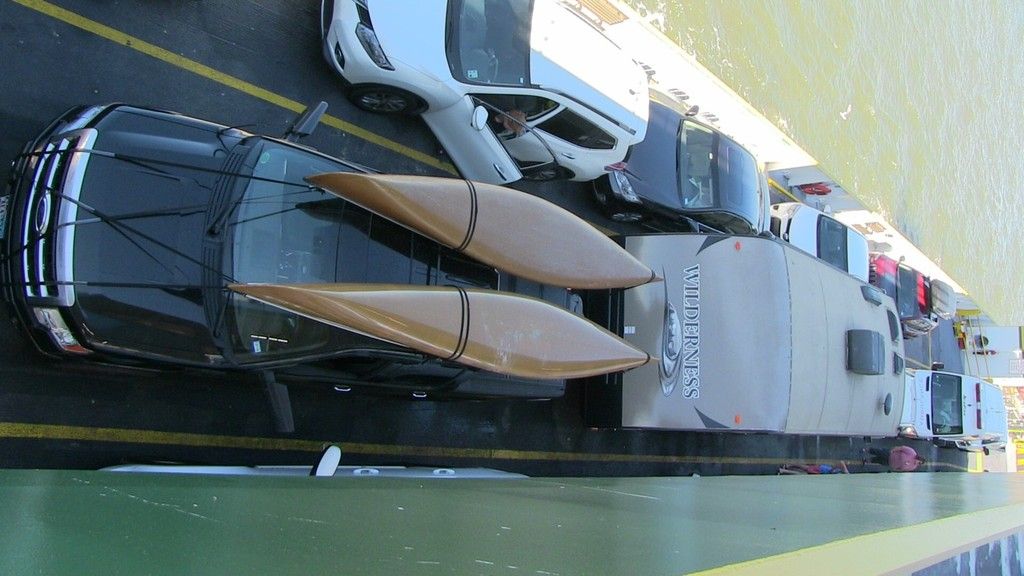
So I ask those who run their RV refrigerators 100% of the time, why?
When driving to my next destination, my refrigerator is always turned off.
Even on those hot 100°F August days when the cabin temperature gets up to 95°F by the time I pull into the next campground, (or stop for the night in a rest area or whatever), there is still ice in the freezer and my beer is cold in the frig.
First thing to do on arrival is plug in the 120 VAC and turn on the refrigerator and air conditioning. And maybe the water heater.
My refrigerator won't keep its cool forever, but it will last for 8 to 10 hours before turning it back on at the next overnight stop.
To those who run their refrigerators on propane while driving down the highway, do you also have your water heater on while driving?
It has been my experience that both the refrigerator and the water heater have sufficient thermal insulation to keep their cool (or hot for the water heater) for longer than I can keep driving (8 to 10 hours).
If you are team driving, the extended driving hours might require running the refrigerator while on the highway to keep your ice from melting.
Needless to say, the more you open the refrigerator door, the faster it loses its cool (just like an Igloo cooler).
If your travels happen to take you on the Galveston ferry, you have to show the ferry traffic attendant that your propane is shut off at the tanks before they will allow you to drive your rig onto the ferry.
I sincerely hope your food doesn't spoil during that 20 minute ferry ride!



Last edited:

